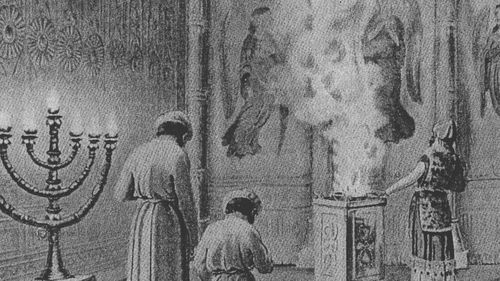Kabbalah: Why Study Of It Comes With A Warning
Nov 14, 2023 · 2 mins read
0
Share

Every religion gives rise to mystical offshoots that provide a more personal intimacy with the divine, compared with the dogma and institutions of the mother faith.
Save
Share
These offshoots push the boundaries of devotion, contemplation and knowledge and can inspire believers and reinvigorate the faith.
Save
Share
From Islam came Sufism, from Christianity the medieval mystics – and from Judaism, Kabbalah (which means ‘receiving’)
Save
Share
Despite their mystical leanings, the early kabbalists had to remain very observant of traditional teachings and law, including the Talmud (the foundational body of Jewish law, story and custom) and the Bible.
Save
Share
The Bible expresses the traditional, masculine values of God, exemplified by the mitsvot (commandments). The Kabbalah complements these with an exploration of the more feminine aspect of the divine (symbolized by the female Goddess Shekhinah).
Save
Share
According to Daniel C. Matt (The Essential Kabbalah), the purpose of Kabbalah practice is to take a person back to the “cosmic consciousness” or mystical union that humankind once enjoyed with God at the beginning of creation.
Save
Share
Why the historical secrecy surrounding Kabbalah learning? Traditionally there are restrictions on who and when a person could gain access to kabbalistic teachings, notably: being over 40; married; and of sound heart and mind.
Save
Share
These restrictions were not so silly. Because Kabbalah deals with the deepest issues of self and God, masters know that mystical knowledge can drive a person mad if they are not able to incorporate it into their understanding of the world.
Save
Share
Daniel Matt quotes Kabbalist Isaac of Akko: “Strive to see supernal light, for I have brought you into a vast ocean. Be careful! Strive to see, yet escape drowning.”
Save
Share
Kabbalah teachers have never gone out of their way to find adherents; there is no point forcing learning on anyone who is not ready to receive the wisdom. But it’s an incredibly rich treasury of inspiration and guidance. It belongs not just to Judaism, but to humanity.
Save
Share
0